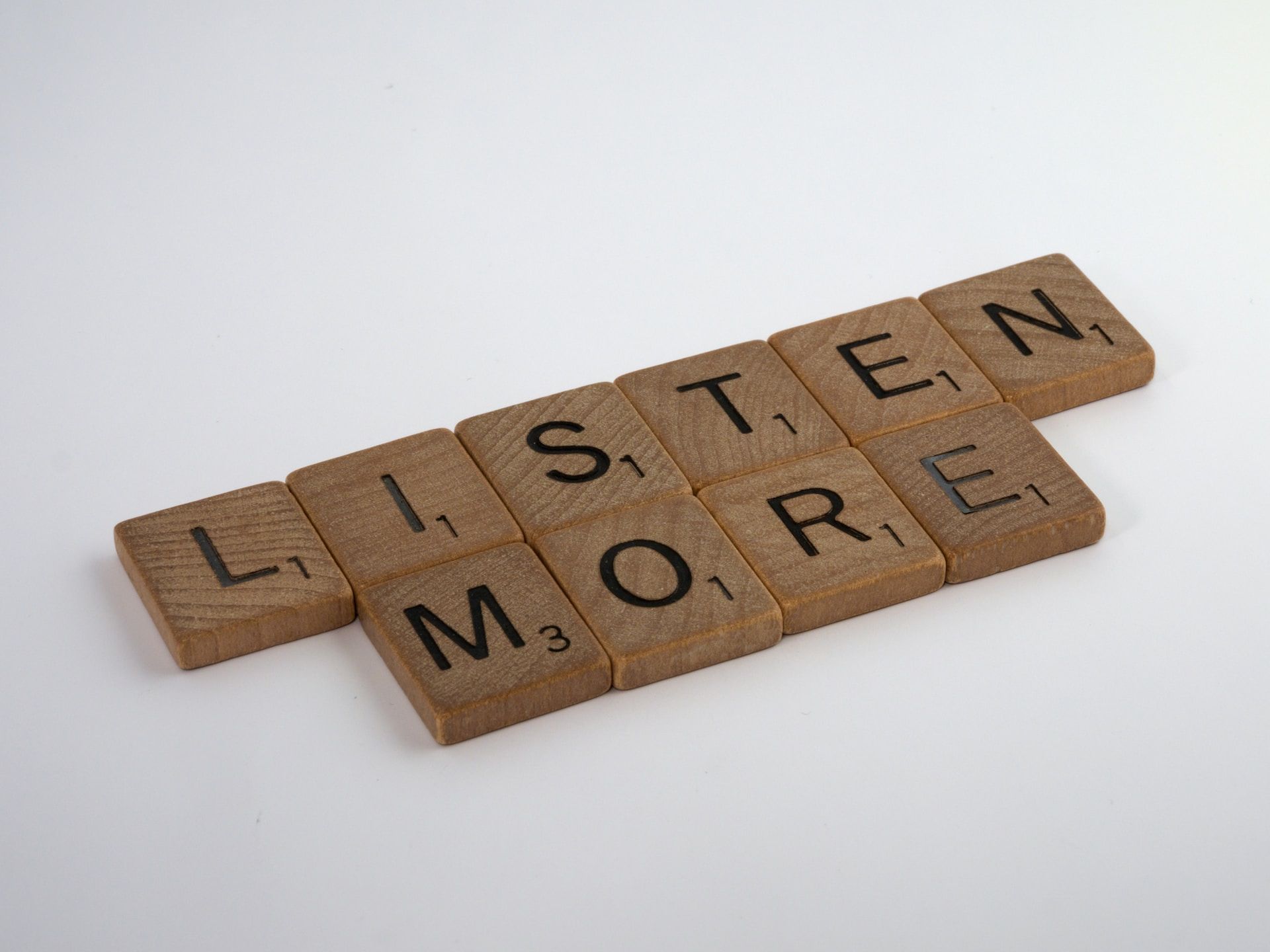Measuring the impact of your events can be tough. Simply selling a lot of tickets or going home with a sense that guests have had a positive experience aren’t reliable ways to tell if an event was a success. There’s a whole range of ways that different attendees can experience the same event. Fortunately, modern event organisers have access to a whole arsenal of digital event tools they can use to measure metrics and build a better understanding of how their event performed - and how to improve the next time round. Here are some examples of digital tools to help you measure the impact of your next event.
Web Analytics Suites
As a large part of your pre-event engagement is going to happen online, web analytics suites are an indispensable digital tool for measuring the impact of an event. With a robust online analytics tool, you can get a more detailed view of the activity happening on your website, and give yourself a good starting point to measure impact before, during, and after your event.
Some common functions for popular web analytics suites include, but aren't limited to:
- Tracking paid and organic traffic to your website.
- Tracking on-site conversions and their sources.
- Creating customised reports based on what you want to measure most.
- Understanding details about your target audience like their age, geographic location, and other demographics.
Many event organisers can achieve an infinitely more detailed understanding of their event with a generalised analytics suite like Google Analytics. However, there are other tools specifically geared towards the events niche, such as 10times, which you may find more accessible if you’re less familiar with marketing dashboards.
Before you launch into incorporating any event management technologies for analysing online engagement, it’s essential to go in with a clear understanding of what your event is setting out to achieve in order to inform your most important KPIs.
Digital analytics tools have a huge array of features and possibilities, and the various data sets you have access to can quickly become overwhelming if you’re not able to filter down the data to look at what matters.

Digital Survey Platforms
One of the most accessible and reliable ways to gauge the success of your event remains directly asking attendees and partners to fill out post-event surveys.
With popular tools like SurveyMonkey, creating and distributing post-event surveys in a digital medium is easy for any organiser, and often comes with great analytics features you can use to spot trends and themes, which you can use to inform the way you plan future events.
Your attendees are busy, and it can be hard to ensure engagement with any survey you send out following an event. You can improve the response rate and quality of data you receive by keeping the questions and format as simple as possible, allowing attendees to fill it out quickly and easily.
Here are some simple “yes/no” questions you might want to use:
- Did the event meet your expectations?
- Did the panel successfully answer questions you had on [product/topic]?
- Are you likely to attend the next event by [organisation]?
- Did you find your check-in experience convenient and easy?
Keeping things simple in your post-event surveys will not only improve the response rate but also make the collated responses easier to understand as datasets and measurable goals for future events.
Hire Space top tip: To measure the impact of your event, you'll need to really consider what data you need to gather. Check out our full guide to measuring the impact of your event for more guidance.

Social Listening Platforms
Social media is an essential tool for event organisers in this day and age, and social listening is a crucial part of it. It involves monitoring your brand’s social media channels for mentions of your event to glean the sentiment of online discussions that feature it.
Attendees are often more inclined to share their opinions of an event with the people in their online communities, rather than a brand explicitly asking for feedback. This makes social listening a great way to tap into feedback you may not have access to otherwise.
Aside from this, there are any number of things an attendee might want to provide feedback on, from the content of speakers’ slots to the way vendors accept card payments, to inclusivity, advertising, and more. Compared to the more restrictive format of a post-event survey, social listening can highlight points for improvement that you may have never thought of otherwise.
If, for example, attendees loved a particular speaker’s slot at your event and would like to see them at future events, or thought there was excessive sponsorship at your event, you’d need fairly specific questions or sections in a survey to gauge this kind of feedback. With effective social listening, however, you’ll find it much easier to pick up on these sentiments and collate them into actionable steps to make future events more appealing to your audience.
Though glancing through your brand’s feeds and checking all the mentions of your event can feel a little chaotic, there are many purpose-built social listening platforms such as Brandwatch which allow you to better organise social media content by keyword, hashtag, industry, and other categories.
With effective social listening, you’ll soon be better equipped to measure the impact of your event, and how effective your social media activities are both pre and post.

Event Apps
Having an event app is quickly becoming a given for a positive attendee experience, allowing people at your event to keep track of updates, create a personalised schedule for their time at the event, and network with other attendees.
Aside from improving the attendee experience and driving engagement, these kinds of event tools can be fantastic for harvesting key datasets and understanding the impact of your event, both during and after the fact.
Registration and check-in data, the rate of engagement with push notifications, return attendee analysis, and the simple analysis of ticket sales and conversions, are all important success metrics which can be recorded by using an event app.
Event apps are also a great platform with which to deliver surveys and other ways of directly asking for attendees’ feedback. One method of doing this is using attendee scheduling data to see which content your attendees are engaging with, and prompting them with live polls shortly after a talk or other event has concluded. Because this occurs directly after a certain part of your event has concluded, attendees’ opinions will be fresh in their minds and hopefully more true to how the content made them feel.
With countless possibilities for building a more positive, personalised experience for your attendees, and gaining a more intimate understanding of the way your target audience interacted with your event, rolling out an event app is a no-brainer for any organiser who wants to gauge their impact.

AI-Powered Event Measurement Solutions
Artificial intelligence is revolutionising how event professionals assess success. As more marketers integrate AI into their campaigns, corporate event planners are unlocking powerful tools to interpret complex data and turn it into meaningful insights that drive measurable ROI.
How AI is Enhancing Event Measurement
From real-time sentiment tracking to predictive analytics, AI enables a deeper understanding of attendee behaviour and event impact. Here are some of the leading solutions making waves:
Attendee Sentiment Analysis
Tools like Explori use natural language processing (NLP) to analyse open-ended feedback at scale. This reveals patterns, emotional tones, and trends that traditional manual analysis might miss. According to their case studies, Explori can surface up to 40% more actionable insights compared to conventional methods.
Predictive Analytics
Platforms such as Circa use historical data to forecast future trends—like expected attendance or session popularity. This allows planners to make data-informed decisions and optimise future event strategies for better ROI.
Automated Reporting
AI platforms like Sparkit.ai can instantly convert raw data into polished executive reports. This not only saves hours of manual work but also provides more in-depth and visually compelling insights for stakeholders.
Enhanced Social Listening
AI tools including Sprinklr and Devi.ai monitor social conversations in real time. They can detect subtle shifts in brand sentiment, identify key discussion topics, and track how your event is perceived across digital platforms.
Implementing AI Effectively
To successfully integrate AI into your event measurement strategy, it’s important to start with a focused goal. Rather than adopting AI across the board, begin by identifying a specific challenge—such as improving feedback analysis or forecasting engagement.
Once you've proven its value in one area, you can expand to other use cases. For those new to AI-driven analytics, Google’s Advanced Data Analytics courses offer practical guidance for applying AI in business intelligence and measurement workflows.
Check out our guide to using AI in events for more tips and insights into where this technology is taking us.

Tracking Carbon Footprint
The importance of a low carbon footprint in events cannot be overstated. By minimising the carbon emissions associated with organising and attending events, we can contribute significantly to combatting climate change. Sustainable event practices, such as utilising digital tools for planning, encouraging public transportation and selecting eco-friendly venues, not only reduce the direct environmental impact but also set a positive example for participants.
YouSmartThing is an innovative digital tool designed to enhance the sustainability and impact of events by optimising travel experiences for attendees. This platform stands out by offering personalised travel planning services, which not only streamline the journey for each attendee but also contribute significantly to the event's overall sustainability goals.
This leading travel management platform assists event organisers in reducing the carbon footprint associated with their events. By encouraging the use of public transportation, shared rides and eco-friendly travel options, the platform plays a crucial role in minimising the environmental impact of travel to and from the event. This approach aligns with the growing demand for more sustainable event practices, as it directly addresses one of the most significant sources of emissions related to events.

Measure for Success
Understanding the impact of an event can seem challenging with so many different variables and a diverse spread of wants and needs among your attendees. However, by equipping yourself with the right tools, learning how to use them, and going in with a clear understanding of the metrics you should be measuring, you’ll be able to paint a much clearer picture of how well your event achieved its overall goal.
Check out Hire Space's guide to measuring the impact of your event for more detailed tips on getting the most out of your data.

Effective event measurement isn't about using the maximum number of tools, but rather implementing the right combination of technologies that align with your specific objectives. We recommend corporate event professionals take this three-step approach:
Define Your Primary KPIs: Before selecting tools, clearly articulate what success looks like for your organisation. Is it lead generation quality, brand awareness lift, or direct revenue generation?
Create a Measurement Timeline: Implement pre-event benchmarking, real-time monitoring during the event, and post-event analysis to capture the complete impact.
Integrate Your Technology Stack: Ensure your measurement tools can share data with each other and with your CRM and marketing automation platforms for comprehensive insights.
If you need assistance implementing any of these tools or developing a comprehensive measurement strategy for your corporate events, the Hire Space 360 team is ready to provide expert guidance and support. Contact us below to discuss how we can help you maximise the impact of your next event.
Maximise Your Event’s Impact
Leverage the best digital tools to measure, analyse and enhance every aspect of your event with Hire Space 360.
Find out more
Authors

Gemma Baker
Gemma loves all things social media and keeps busy by creating lots of Hire Space content. When she’s not creating content, you'll find her shopping, exploring or at the gym!

Tim Green
Tim Green is passionate about marketing and technology and currently enjoys writing content within the Fintech & SaaS industries, having specialised in cybersecurity for much of his career.


